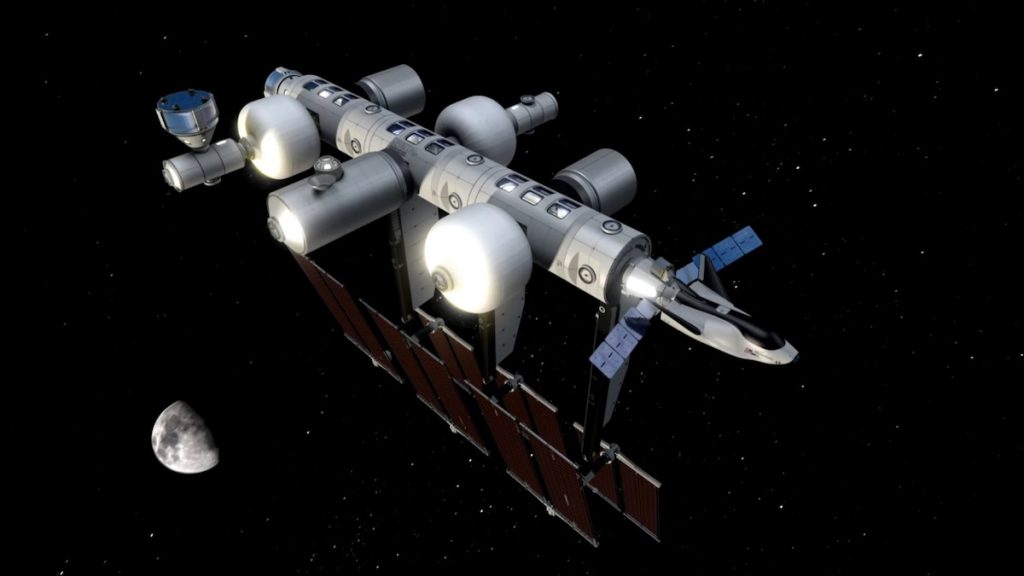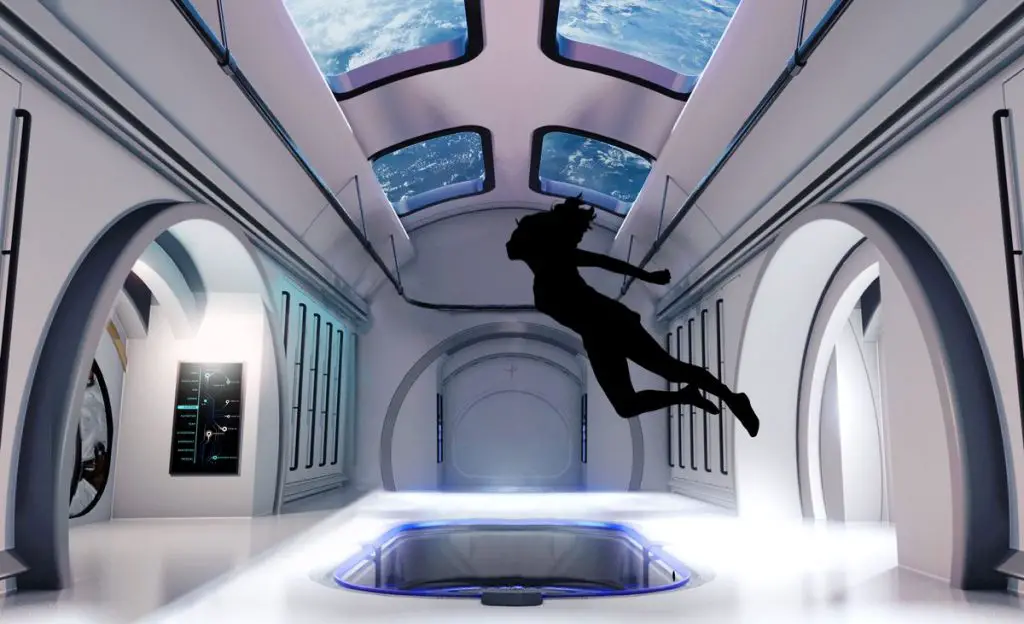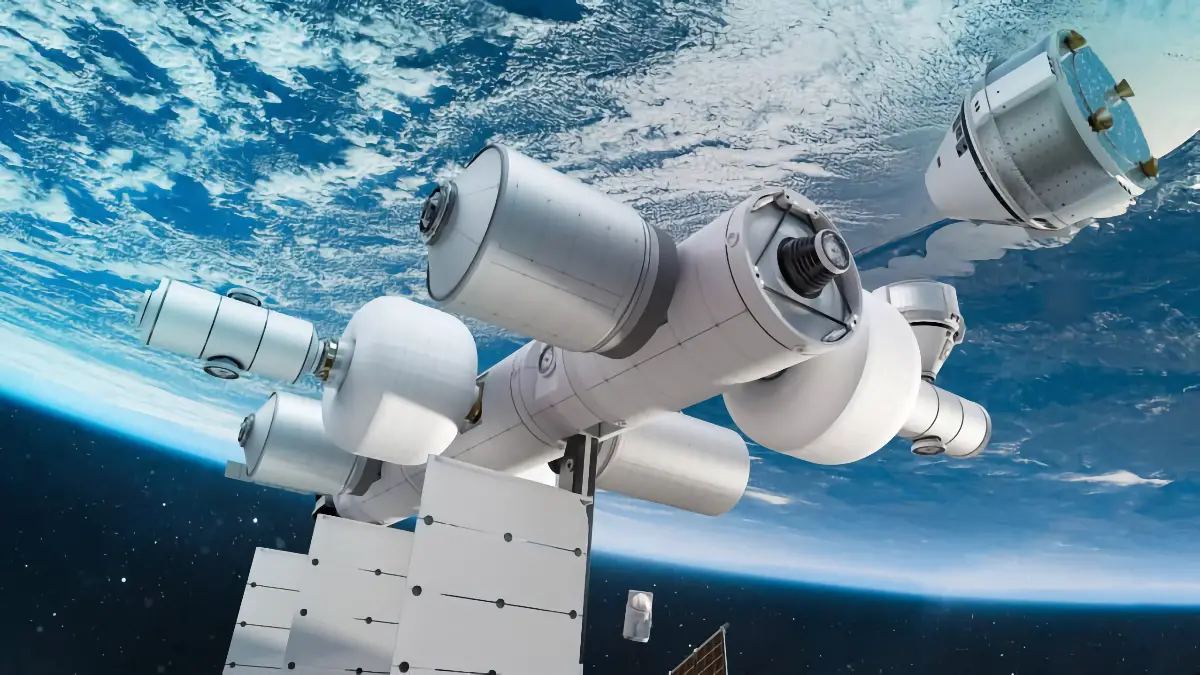The race for space tourism is on. Earlier this year we saw Blue Origin and Virgin Galactic in direct competition with one another to see who could carry paying customers into low-Earth orbit first. A few months later, SpaceX followed up with a civilian flight of its own, this time taking travelers on a three-day journey around the planet. Recently, we even shared a story of newcomer Worldview, which will offer flights into the stratosphere aboard a high-tech balloon.
Now, Jeff Bezos Blue Origin has announced ambitious plans to put a space station in orbit that can accommodate paying customers, along with researchers and industrial clients. Dubbed the “Orbital Reef,” the space hotel is set to offer extended stays in zero gravity.

A Group Effort
Blue Origin has taken years for its current reusable rockets to go into service and it could be many more years before it’s ready to compete directly with the likes of SpaceX. That makes the announcement last week of the Orbital Reef a bit surprising. As it turns out however, building the commercial space station will be a group effort.
Joining Blue Origin in this project is a company called Sierra Space, which is currently working on a space plane called the Dream Chaser. That vehicle is designed to deliver cargo to the International Space Station (ISS) and is expected to make its inaugural launch sometime in 2022. Once in service, the Dream Chaser would likely take some cargo runs away from SpaceX, creating a bit of a “the enemy of my enemy is my friend” situation.
The two space startups will be joined by a few other partners on his venture as well, with Boeing, Redwire Space, Genesis Engineering Solutions, and Arizona State University all taking part. Of those, Boeing obviously has the most experience in creating vehicles meant for traveling to and in orbit. The company has also been locked in a tight competition with SpaceX as well.

Life in Orbit
Once complete, Orbital Reef will be nearly the same size as the ISS, but with more modern technology onboard. It will have room for up to ten people and have a modular design built to accommodate not just tourists, but engineers, research scientists, members of the media, and others. Unsurprisingly, the cost of a visit to the space station has not been revealed.
According to the early designs, the Orbital Reef will have multiple docking points, allowing a variety of vehicles to visit and connect. This would allow not only the Dream Chaser to pay the station a visit, but also Boeing’s Starliner and Blue Origin’s New Glenn rocket as well. Both of those crafts remain in various stages of testing, with New Glenn yet to take flight.
Details of the interior of the space station are still in flux, but will include living quarters for the crew, labs to conduct experiments and research, and a few amenities for travelers. Those amenities will include large windows throughout the structure for taking in the view. An area dedicated for medical care and another for recreation are expected to be part of the final design.
A Business Park in Space
Blue Origin has described the Orbital Reef as a “mixed-use business park” and is approaching it as a revenue generator that will at least cover the costs of construction. At the moment, no price estimates for the space station have been revealed, but for comparison’s sake, the ISS cost $150 billion when it was launched in 1998. It also costs roughly $4 billion a year to operate. At those price tags, vacancy on any space station gets costly.
Much like the ISS, the consortium that is building the Orbital Reef will be working with a variety of international partners. The group is reportedly already in talks with the United Arab Emirates space program and NASA has indicated that it will be a key partner as well.
Anyone looking to book a stay on the new space station has some time to start saving up for the trip. While the Blue Origin team isn’t ready to put a timeline on its construction and opening just yet, they have indicated that the Orbital Reef is expected to go into operation before the end of the decade.
Start saving your pennies now kids.
- Gear Review: The Xero Scrambler Mid is an Ultralight Hiking Shoe for Spring - March 1, 2023
- Gear Review: Yeti Roadie 48 Wheeled Cooler - August 18, 2022
- Kristin Harila Continues Pursuit of 8000-Meter Speed Record - August 16, 2022
